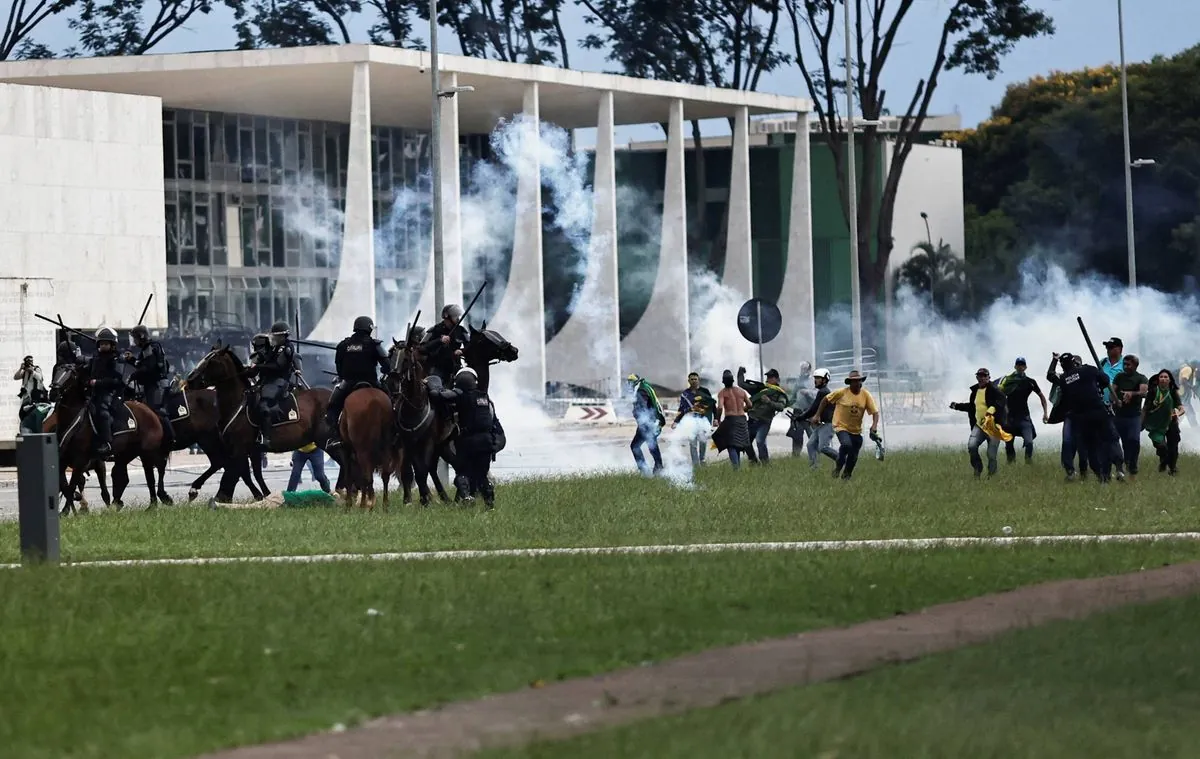In a recent development that has stirred controversy in Brazil, the country's Supreme Court has maintained its stance on fining individuals who use Virtual Private Networks (VPNs) to access the social media platform X, formerly known as Twitter. This decision comes amid false claims circulating online suggesting that the order had been rescinded.
The ban on X in Brazil was initially implemented on August 30, 2024, by the country's telecommunication regulator. This action was taken after the platform failed to comply with court orders and appoint a legal representative in Brazil. Subsequently, Supreme Court Justice Alexandre de Moraes issued an order imposing fines of up to 50,000 reais (approximately $8,943.74) per day on individuals using VPNs to circumvent the ban.
On September 2, 2024, the First Chamber Justices unanimously supported Moraes' ruling, solidifying the court's position. Despite this, misinformation began to spread on social media platforms, with some posts erroneously claiming that Moraes had reversed the order. One such post declared, "BREAKING: Supreme Court will no longer enforce fines on Brazilians who access X via VPN. Brazilians are safe to access and use X via a VPN. Dictator Moraes blinked."
However, as of September 6, 2024, the Supreme Federal Court of Brazil has not reversed its decision regarding the use of VPNs to access X. The ban and associated fines remain in full effect.
It's worth noting that while the initial order also included instructions for Google and Apple to remove VPN applications from their virtual stores, this requirement was later dropped. Nevertheless, the fine for individuals using VPNs to access X remains in place.
The situation has sparked debates about internet freedom and censorship in Brazil, a country with one of the world's most active social media markets. The Brazilian Constitution guarantees freedom of expression, but the nation has faced challenges in balancing this right with efforts to combat misinformation and regulate online content.
This incident is not isolated, as Brazil has previously encountered conflicts with social media platforms over content moderation issues. The country's Supreme Federal Court, consisting of 11 justices, plays a crucial role in interpreting and upholding constitutional rights in the digital age.
As the largest country in South America with a population exceeding 200 million, Brazil's decisions regarding internet regulation and social media access have significant implications for the region and beyond. The ongoing situation with X and VPN usage highlights the complex interplay between technology, law, and freedom of expression in the modern digital landscape.
"The use of technological subterfuges to circumvent a judicial decision constitutes a violation of the rule of law and undermines the effectiveness of court orders."
While the debate continues, it is crucial for Brazilian citizens to stay informed about the current legal status of social media access and the potential consequences of using VPNs to bypass restrictions. As the digital world evolves, so too will the challenges faced by nations in regulating online spaces while preserving democratic freedoms.
